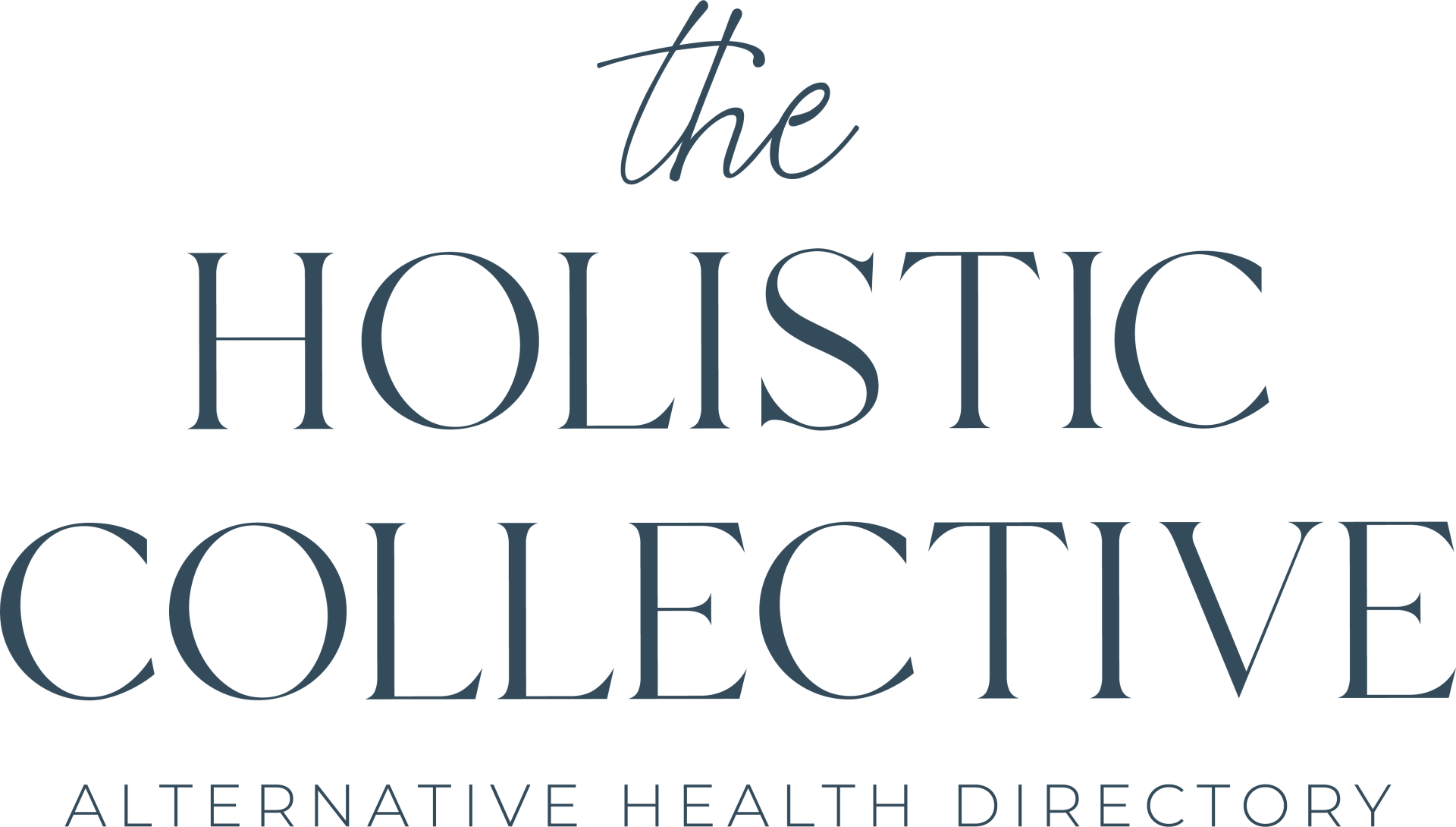Holistic Living Blog
Discover the ingredients of a holistically well-lived life with education
that propels you forward on your path to daily wellness.

By Laura Lee Paha
•
03 Apr, 2024
If you're new to the concept of Family Constellations, it's a profoundly transformative method for addressing ancestral trauma, as well as trauma within your immediate family or any other system you're a part of – whether it's as vast as the collective or as intimate as your own individual system. My personal focus within Family Constellations is on healing within the family system and addressing ancestral trauma. Over time, I've come to recognize the immense burden we carry from previous generations, even when we have little knowledge or connection to their experiences. This inherited weight can often manifest as obstacles or feelings of being stuck in various aspects of our lives. What's truly remarkable about Family Constellations is that we don't necessarily need to know the specifics of our family history to begin healing. While some clients seek to address particular traumas, many others come to me seeking clarity and release from unresolved issues affecting their present-day lives. Through Family Constellations, we gain valuable insights into the roots of our struggles, helping us understand that these challenges didn't originate with us. This work provides a safe space to acknowledge, explore, and ultimately transform these deep-seated connections, allowing love to flow freely within our family systems and toward ourselves. This flow of ancestral love and life force energy is instrumental in bringing alignment to all aspects of our lives, leading to profound and miraculous healing. In March, I hosted a Family Constellations workshop at The Healing Society in East Nashville. It was a truly incredible experience and I'm excited to be able to bring future offerings to the Nashville area. My next workshop is scheduled for April 14th at 100 Taylor Street in Germantown. Co-hosted with my colleagues Michelle Donice Gillis, Misti Dian, Becky Parker, and Maria Brannon, "HEAL: A Night of Family Constellations, Restorative Yoga, Reiki & Sound Bath" promises to be a holistic healing experience featuring meditation, restorative yoga, reiki, and a healing sound bath. Space is limited, so be sure to secure your ticket for HEAL and mark your calendar for Sunday, April 14th. It's time to break free from generational curses and ancestral trauma. *Laura Lee Paha is an intuitive healer specializing in healing family and ancestral trauma, with a focus on supporting women grappling with "mom guilt" and empowering them to heal their mother wounds.

By Michelle Donice
•
03 Apr, 2024
Embark on an unforgettable journey with Michelle Donice and Misti Dian from September 29th through October 5th to the enchanting island of Amorgos, Greece. Amorgos, nestled in the embrace of the Aegean Sea, is a hidden gem waiting to be explored. With its crystal-clear waters, rugged mountain landscapes, and serene atmosphere, it sets the perfect stage for a week of yoga, relaxation, and culinary delights. Start each morning under the warm Grecian sun with invigorating yoga and meditation sessions. Whether you're a beginner or a seasoned yogi, these sessions will help you connect with your inner self amidst the tranquil surroundings. Feel the gentle breeze, inhale the fragrance of wild herbs, and let the rhythmic waves guide you to inner peace. Our retreat accommodations offer luxurious facilities to pamper and rejuvenate your spirit. Take a refreshing dip in the pool, embark on island hikes, indulge in spa treatments, or simply savor the serenity of the island. It's a time to detach from the chaos of daily life and reconnect with your essence. Savor culinary delights prepared by our chef, who draws inspiration from local ingredients and traditional Greek flavors. Picture yourself dining al fresco on a terrace, relishing dishes that tantalize your taste buds and nourish your soul, all while admiring the breathtaking vistas of Amorgos. Amorgos beckons you to explore its hidden treasures — from the ancient Hozoviotissa Monastery perched on the cliffs to the charming villages scattered across the island. Wander through labyrinthine streets, discover secluded beaches, and immerse yourself in the rich history and culture of this magical place. This retreat isn't just about visiting a destination; it's about crafting an experience that leaves you rejuvenated, inspired, and transformed. Bond with fellow travelers, create lasting memories, and embark on a journey of self-discovery amidst the beauty of Greece. Spaces are limited, so reserve your spot for this exclusive retreat to Amorgos today. Discover tranquility, prioritize self-care, and immerse yourself in the essence of Greece. Contact me now to secure your place: Book Your Amorgos Retreat Have questions or comments? Feel free to leave them below or connect with me on social media using #AmorgosWithMichelleDonice. Let's ignite our excitement for this upcoming Greek adventure! Join us on this voyage to nourish your body, mind, and soul, as we transport back in time and embrace serenity. I eagerly anticipate meeting you in Amorgos

By Lori Zabka
•
28 Mar, 2024
Welcome to 2024, If you're anything like me, you might be contemplating a new dietary approach as the new year unfolds. Perhaps you've been inspired by the Netflix twins' "You are What You Eat" experiment, or maybe you're considering cutting out certain foods or food groups, or even embracing a vegetarian or vegan lifestyle. Whatever your dietary aspirations may be, I'd like to offer you a different perspective to consider: While finding the right "diet" or meal plan to achieve your goals may seem appealing, the true key to reaching your wellness and fitness objectives lies in cultivating a healthy and resilient microbiome. Your microbiome, comprised of trillions of microbes in your gut, has the remarkable ability to transform the foods you eat into beneficial and usable substrates that promote health, longevity, and resilience in your body. Gas, bloating, food intolerances, and various health conditions are often signs of a dysbiotic microbiome – an imbalance characterized by an overabundance of harmful bacteria and a deficiency of beneficial ones. Surprisingly, the root cause of these issues often lies not in the food itself, but in the state of your microbiome. A healthy microbiome efficiently converts ingested foods into beneficial byproducts, such as short-chain fatty acids, which play a crucial role in improving insulin sensitivity, reducing fat mass, enhancing immune function, and mitigating the risk of numerous diseases. Conversely, an unhealthy microbiome generates toxic byproducts that contribute to leaky gut, inflammation, and systemic dysfunction throughout the body. While there are certain foods that should be avoided – namely, inflammatory sugars, processed junk foods, refined carbohydrates, and artificial ingredients – the focus should be on nourishing your microbiome with probiotics and prebiotics. PROBIOTICS, the beneficial microbes in your gut, play a vital role in maintaining gut health and overall well-being. Spore-based probiotics, in particular, have shown efficacy in repairing and rebuilding the gut ecosystem. If you're interested in learning more about why spore-based probiotics are superior and how they work to restore gut health, feel free to reach out to me at lori@lifebyloriz.com. PREBIOTICS , on the other hand, are non-digestible fibers found in plant foods that nourish your gut microbes. By consuming prebiotic-rich foods such as beets, parsnips, garlic, beans, and berries, you can support the growth and activity of beneficial bacteria in your gut. To optimize your microbiome health, it's important to diversify your diet and incorporate a wide range of prebiotic foods on a daily basis. Experiment with different vegetables, roots, and fruits to increase the diversity of your gut microbiota and promote overall gut health. Remember, eating is about more than just fueling your body – it's about nourishing the powerful gut bacteria that play a crucial role in controlling your metabolism, hunger, and body mass. Rather than focusing on counting calories or macros, prioritize consuming a variety of colorful, whole foods while avoiding processed and junk foods. In closing, I encourage you to shift your mindset away from restrictive diets and calorie counting, and instead focus on nourishing your microbiome with wholesome, nutrient-dense foods. By doing so, you'll not only support your own health and well-being but also cultivate a thriving ecosystem within your gut. Until next time, Wishing You Good Health, Lori

By Lori Zabka
•
28 Mar, 2024
Lately, there's been a growing buzz surrounding the importance of nurturing our nervous system health. Perhaps you've caught wind of it on your social media feeds or through your favorite podcasts. Practitioners across various disciplines – psychologists, somatic experts, wellness professionals, and more – are increasingly highlighting the profound connection between a dysregulated nervous system and the myriad symptoms, conditions, and diseases that afflict many today. It's heartening to see this critical aspect of wellness finally receiving the attention it deserves. And it prompts an important question: WHICH COMES FIRST: HEALING THE MIND OR HEALING THE BODY? As a holistic health practitioner and functional nutritionist, I see the mind and body as integral parts of one interconnected vessel. My friend Pilar Gerasimo, author of The Healthy Deviant, shares this view, often referring to the human system as the "body/mind." This concept is vividly illustrated by the relationship between the gut and the brain, known as the gut-brain axis. Consider this: during fetal development, your gut and brain initially formed as a single mass of tissue. As you grew, your brain migrated to one end while your gut moved to the opposite end. Despite this physical separation, their deep connection persisted through the Vagus nerve, a vital component of the peripheral nervous system. Throughout your life, your gut continues to communicate with your brain via this nerve. That's why we often experience those familiar "butterflies in the stomach" sensation in response to exciting or alarming news. Every bodily function is influenced by both ends of the nervous system – the gut and the brain – demonstrating that the body and the mind are not separate entities but rather two integral parts of one whole. So, what does this mean for you? If you're grappling with chronic physical symptoms or conditions, chances are you're also experiencing some level of emotional dysregulation, whether you're fully aware of it or not. Conversely, if you're contending with chronic anxiety, depression, or other mood disorders, you likely have dysregulation in your gut as well. This bidirectional pathway between the gut and the brain means that stress and imbalance in one area can adversely affect the other. The condition of your gut mirrors the condition of your brain, and vice versa, just as it did in the womb when they were one. So, when it comes to healing chronic conditions, which takes precedence: addressing the gut or the brain? Whether you're tackling mental and emotional challenges or grappling with conditions like autoimmunity, diabetes, or cancer, the answer is clear: BOTH, SIMULTANEOUSLY. The good news is that my role as a Holistic Health Practitioner enables me to address both aspects effectively. I collaborate with clients to implement nutritional and lifestyle practices that calm a chronically "charged" nervous system while simultaneously devising gut-healing protocols. By focusing on both ends of the nervous system – the gut and the brain – I strive to bring about balance, clarity, and healing. If you're eager to explore further, don't hesitate to reach out via email through my website. Let's connect and embark on this journey toward holistic wellness together.

By Lori Zabka
•
18 Mar, 2024
As a woman who's recently reached the half-century milestone, I found a thick envelope waiting for me in the mailbox, courtesy of AARP. It seems I've earned my ticket to join the American Association of Retired People. But hold on a moment! While I DID hit the big five-oh, I'm far from winding down. In fact, I'm fully engaged in my work as a wellness practitioner, particularly with women navigating midlife and beyond. So, pardon me if I put that AARP membership on hold for now – I've got plenty more living to do! Now, let's delve into a topic that touches us all: aging. Doesn't exactly sound like a barrel of laughs, does it? We've all heard the clichés about aging – the downhill slide, the creaky joints, the unwelcome surprises on our faces and bodies. But fear not! Today, I'm here to provide you with a roadmap to the fountain of youth. Let's tackle four key areas that tend to take a hit with age, and explore what we can do about them. Aging often feels like a gradual rearrangement of our bodily furniture. As those candles multiply on the birthday cake, our bodies start downsizing, especially in the muscle department. Hormonal shifts, decreased physical activity, lack of weight-bearing exercise, and poor nutrition can all contribute to muscle loss, a condition known as sarcopenia. But here's a twist: even if you're eating right, digestive issues and gut health can hinder the absorption of essential nutrients needed to build muscle. Addressing digestion and gut health becomes crucial for maintaining muscle mass and preventing a host of health issues associated with muscle loss. Collagen: Think of collagen as your body's architectural glue, providing support and structure to your skin, tendons, ligaments, and bones. Unfortunately, collagen production takes a nosedive as we age, thanks to factors like exposure to toxins, chronic inflammation, sedentary lifestyle, and poor nutrition. Just like with muscle building, proper digestion and gut health play a vital role in collagen production. Without addressing these foundational issues, maintaining healthy levels of collagen becomes increasingly challenging. Bone: Osteoporosis, or bone loss, is a common concern as we age. Hormonal changes, lack of exercise, inflammation, and nutritional deficiencies all contribute to this condition. Interestingly, vitamin K – essential for bone health – is primarily produced by our gut bacteria. An imbalance in gut flora can disrupt this process, leading to compromised bone density. Thus, prioritizing gut health is paramount for preserving bone health and preventing osteoporosis. Stomach acid: Proper digestion hinges on adequate stomach acid levels. Contrary to popular belief, low stomach acid – often caused by lifestyle factors like stress and poor dietary choices – can wreak havoc on digestion. Chronic low stomach acid can even lead to reflux and heartburn, prompting many to reach for acid-blocking medications that only exacerbate the issue. In reality, improving gut health and addressing lifestyle factors can often alleviate these digestive woes, restoring proper stomach acid levels and overall digestive function. Did you notice a common thread running through all these areas? That's right – the gut microbiome. The health of our gut flora influences muscle mass, collagen production, bone density, and stomach acid levels. By prioritizing gut health and adopting lifestyle changes, we can potentially reverse or prevent age-related declines in these crucial areas. So, instead of chasing after elusive fountains of youth, let's focus on nurturing the real foundation of vitality: our gut health. Until next time, here's to your health and vitality!
By Aarti Kumar
•
31 Mar, 2023
Metabolic health has been on a decline for decades. A recent study, which followed 55,000 Americans between 1999 and 2018, reveals that things are worse than we thought: only 6.8% of American adults have good metabolic health. That means just about every adult in the U.S. does not meet the threshold to be considered metabolically healthy. Metabolic health is determined by blood glucose, HDL cholesterol, triglycerides, blood pressure, and waist circumference. If you have healthy levels across all categories, congrats! But if you’re like the other 93% of Americans, those numbers aren’t where they should be. Having unhealthy numbers on these metrics puts you at increased risk of developing metabolic syndrome, which affects about 1 in 3 adults. So with metabolic syndrome being so common, is there any possibility it can be reversed? The answer is yes, but it’s going to require a different approach to diet and exercise than is typically taught. THE CULPRIT LURKING BEHIND POOR METABOLIC HEALTH We’ve all had days that go something like this: Sugary cereal for breakfast Hours spent sitting, whether you’re working on a computer or watching something on TV Quick, convenient meals for lunch and dinner, which could be anything from fast food and takeout to pre-packaged meals you throw in the microwave minutes before you sit down to eat Snacks and drinks to keep us going throughout the day Chores, family activities, chauffeuring duties, and other responsibilities that leave little time for anything else We’re busier than we’ve ever been. It’s also easier than it’s ever been to neglect our health, thanks to the many conveniences we enjoy (and rely on!). But a sedentary lifestyle combined with poor diet catches up to all of us eventually; it’s not a matter of if, but when. Metabolic health comes down to insulin and the body’s tendency to become resistant to it. Eat a lot of carbs and processed foods and your pancreas will produce more insulin. Snack all day and your glucose levels will stay elevated. Neglect to prioritize exercise and it’s harder to keep insulin at healthy levels. Insulin resistance affects more than our ability to maintain or lose weight, which is why our first line of defense for any needed adjustment usually involves changing our diet. CHANGING THE NARRATIVE For years our focus has been eating low-fat foods. Many count calories as a way of managing their weight. And who hasn’t justified eating that extra donut because they had a good workout that morning? But in reality, calorie counting has little to do with metabolic health. Exercising more doesn’t make up for eating lots of sugary and processed foods. And a well-balanced diet will do us more good than a low-fat one. 5 PRINCIPLES TO COMBAT METABOLIC SYNDROME So where does this leave us? What lifestyle choices actually support metabolic health? The phrase “work smarter, not harder” applies here. Once we understand nutritional principles that support metabolic health, we can make better choices that support our health long term. 1. Prioritize protein. Protein is about more than building muscles that impress your friends. It keeps you feeling full—which helps us avoid snacking all day—and has little to no insulin response. 2. Control carbohydrates. As one of the body’s main energy sources, carbs should be part of a well-balanced diet. But our focus should be on complex carbs, not simple carbs. Think whole grains, leafy greens, and nuts. Pass on anything with added sugars, like soda, baked desserts, and fruit juices. 3. Fuel with fat. Believe it or not, fat in your diet is actually a good thing! It’s an essential macronutrient that helps the body absorb vitamins and support heart and brain health. It’s also a good source of energy that has no insulin response, and, like protein, keeps you feeling full for longer because it takes longer to digest. Just be sure you’re getting the right kind of fat—focus on unsaturated fats and avoid trans fats as much as possible. 4. Practice intermittent fasting. Food makes our insulin levels fluctuate. To keep insulin levels more stable, it’s a good idea to go longer periods of time without eating. This allows the body to burn off carbohydrates and tap into fat burning for energy. Unicity’s Feel Great program is an effective way to incorporate intermittent fasting into any lifestyle without having to rely on willpower or an extreme diet and exercise regimen to succeed long term. 5. Live a healthy lifestyle. While diet has the biggest effect on metabolic health, anything you do to live a healthy lifestyle will help you out. Exercise regularly. Move more throughout the day. Eat more whole grains and vegetables. Sleep more. Stress less. Remember that there are five factors involved in metabolic health: blood glucose, HDL cholesterol, triglycerides, blood pressure, and waist circumference. It’s possible you may have a healthy waistline, but have shortcomings in other areas, so it’s always a good idea to have regular checkups!
Become a Member
Are you a holistic care provider in Middle Tennessee ready to showcase your business?
Site Navigation
Directory Links
Join the Holistic Collective Email Community
You’ll be notified when new providers join our directory community, when we host special events, and when there’s a discount or deal we are excited to share.
All Rights Reserved | The Holistic Collective | Privacy Policies | Terms & Conditions | Photography by Lifestyle By LeBlanc | Brand & Website Designed by The Carlyle Creative |
© 2024





